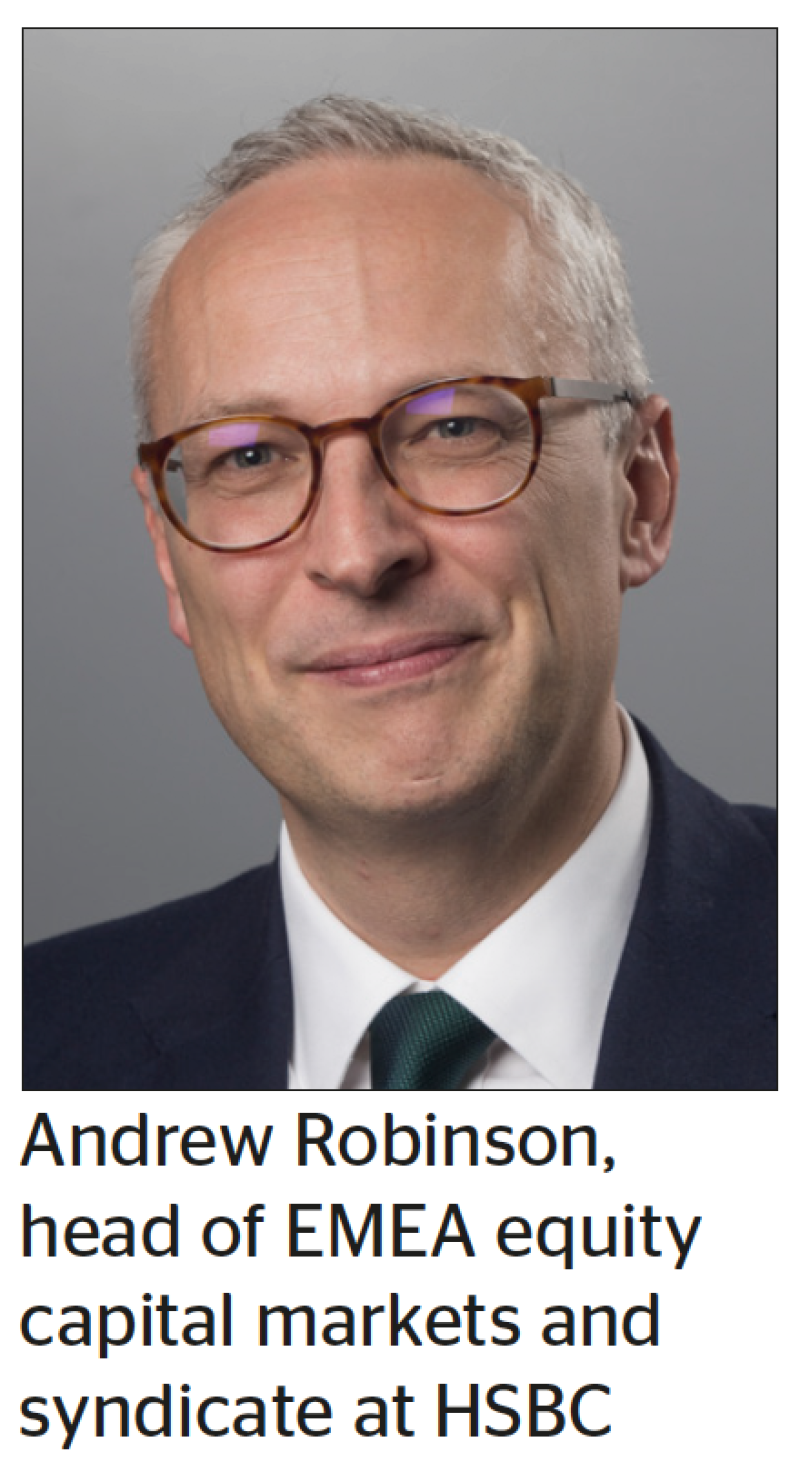At group level, by August 2020, the bank had provided $52bn of lending facilities to wholesale customers, while in the bond market it had helped raise $48bn through social and Covid-19 relief bonds.
It was at the fore in equity capital markets, too, working on a succession of capital raises to help afflicted businesses navigate through the crisis and back to financial health.

“HSBC has always had a reputation of being a bank, which stands by its clients. It did that in the aftermath of the 2008 financial crisis, and I think we proved our mettle again with the impact of Covid,” says Ed Sankey, global head of equity capital markets at HSBC.
The bank was involved in a large number of primary capital raises globally that were directly linked to the effects of the Covid-19 pandemic in 2020, putting it at the top end of the league tables for the issuance of primary capital.
HSBC played key roles in a variety of issues, such as the £2.3bn rights issue for Rolls Royce and accelerated offerings for SSP, IWG, WHSmith, Informa and National Express. It was also one of the lead banks on the €600m convertible for Lufthansa, which HSBC followed with a sole books role on a convertible bond for Singapore Airlines.
“Each of them were really quite different but what they all had in common was that they were all from relationships which we already had, all businesses that we already knew very well. This allowed us to act quickly using our network,” says Andrew Robinson, head of EMEA equity capital markets and syndicate.
“That depth and history of the relationships meant that our clients’ needs as the crisis unfolded were front and centre of our minds,” says Sankey. “There’s a very clear directive within the firm, right from the top, that we’re here to support our clients and do things in the right way,” he says.
Sankey likes to tell the story of how, shortly after joining the bank in 2019, he was preparing to meet a client for the first time and asked a colleague how long HSBC’s relationship went back. “A little over a century,” came the reply.
Such familiarity with its clients was crucial during the height of the Covid crisis last year, says Robinson.
“The really important thing about any primary capital raise is the narrative about how the company is going to thrive in the future,” he explains. “That was especially true for the Covid-related deals, where it was about crafting a narrative of not just survival but one that demonstrated how they’re going to accelerate growth.”

The first company to launch a Covid emergency equity raise was food-court operator SSP Group in March, at the height of the market turmoil, with a £216m offer. “It had a very immediate and very real need when it came to the market,” says Sankey “The forward story had to be strong — there was an entire capital markets solution being executed at the same time and we were able to show shareholders that we had a solution that worked across the debt and equity pieces. The demand for the equity was robust as was the aftermarket.”
Investors noted how well HSBC knew the businesses it was bringing to market, and that interests were aligned. “A number of the shareholders understood we were well-positioned to be leading the dialogue with them on the equity given our history and institutional commitment to the issuer,” he says.
One big factor in the successes of UK Plc in the Covid recapitalisations was the change to the rules allowing up to 20% capital raises before offering pre-emption rights. “It was a game changer in the UK,” says Sankey. It meant that instead of the succession of rights issues seen in 2009, corporates could come and tap the market overnight and around £40bn was raised that way. It also showed off a different side of HSBC’s ECM expertise, says Robinson.
“HSBC has historically made a great virtue of the strength of balance sheet to support our clients, and our consistency and reliability was once again a key element for many clients in volatile markets” he says. “But Covid was also fundamentally about HSBC being able to position each company’s narrative — which we could do because of our long client relationships and understanding of their businesses - and using our market insight and highly experienced equity markets franchise to execute transparently and efficiently”.






